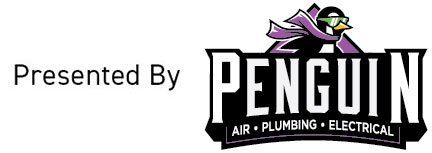The NBA trade deadline on Feb. 9 is just more than a month away, leaving the Phoenix Suns in a unique position.
At 20-18 entering Wednesday, the team has hit a skid of six losses in seven games. It will be without star Devin Booker through at least the next three weeks as he recuperates from a groin strain.
The Suns sit seventh in net rating — fifth offensively and 13th defensively — for the entire season. But even before Booker’s last appearance on Christmas, things had been going south.
Take out the first 10 games of the year up to Nov. 7, and Phoenix falls to 16th in net rating — fifth offensively and 25th defensively.
And if we consider their recent 4-11 stretch from Dec. 5 until Wednesday, Jan. 4, the team is 29th in net rating — 20th offensively and 29th defensively.
There is a “reset or reassemble?” argument to be had about this team at the moment.
Jae Crowder’s season-long absence, Cam Johnson’s recovery from a torn meniscus and Booker’s groin injury have contributed to the fall-off. Chris Paul’s age and slow-roll into hitting peak shape, plus the challenge of putting offensive responsibilities on Deandre Ayton and Mikal Bridges, have all accounted for speedbumps.
As the Suns sit just 4.5 games from the top of the Western Conference but 3.0 games from being out of the play-in picture, president of basketball operations and GM James Jones has decisions to make.
Here’s a quick primer on the current roster situation with the trade deadline upcoming.
Suns roster construction
Phoenix has 14 players on standard NBA deals and two additional two-way contracts that don’t count toward the 15-man maximum.
That leaves them with one open roster spot, which Jones has generally used in case the team has an opportunity to land a player who was cut at the deadline. The Suns have the tax-payer mid-level exception, giving them an opportunity to spend more than the veteran’s minimum if competition arises on that market.
Of needs, there are plenty: On-ball shot creation (for oneself or others) and wing depth would seem to be priorities.
The open roster spot could also be used on a 10-day contract addition.
Or at the end of the year, it could be filled by signing either Ish Wainright or Duane Washington Jr., who are on two-way contracts. Putting them on a standard contract would make them playoff eligible.
Jae Crowder remains on the market
Crowder and the Suns agreed they will seek trade options for his expiring $10.2 million contract, and the forward has not been with the team since last season.
While Eastern Conference contenders like the Milwaukee Bucks, Atlanta Hawks and Miami Heat have been linked in terms of interest, it appears the Suns want at least one starting-caliber player in exchange for Crowder. That could mean the deal includes more than just the former starting power forward.
Crowder averaged 9.4 points, 5.3 rebounds and 1.9 assists per game last year and has been pivotal in the Suns’ success in the past two seasons.
But his reasons for not wanting to return to Phoenix — be it a desire for a contract extension this summer or otherwise — hurt his trade value. Complicating matters is the fact that suspended Suns owner Robert Sarver must sign off on any deal that involves $10.8 million or more in salary coming back to Phoenix, as ESPN’s Brian Windhorst has reported.
In summary, it appears Jones wants to use Crowder’s deal to make a significant move, meaning it could take up to the deadline and require a multi-player and multi-team effort.
Ayton’s contract situation and other contract quirks
All three of the Suns’ centers have asterisks to their contracts this year.
Most notable, by far, is starter Deandre Ayton. He signed a four-year $133 million deal with Phoenix after the team matched an offer sheet from the Indiana Pacers on June 14.
While Ayton and head coach Monty Williams seemingly got over their riff that began in Game 7 of the Western Conference Semifinals last season and ran into the start of 2022-23, his play has included some peaks and more valleys. Ayton has struggled to adjust with Paul sidelined for part of the year and as the team has tried to run more offense through him.
Ayton’s percentages have risen, however, to 61% shooting. He’s averaging 17.5 points and 9.4 rebounds per game.
This year, the center’s salary sits at $30.9 million.
With the Suns matching the Pacers’ offer sheet, the team cannot trade the center until Jan. 15. But Ayton also has the power to veto a trade for a full year after the contract was signed. He can’t be traded to Indiana during that span.
Beyond Ayton, center Bismack Biyombo can veto any trade this year, while Jock Landale’s deal becomes fully guaranteed on Jan. 10, according to Spotrac.
And this may be putting the cart way ahead of the horse, but Paul’s current contract signed two summers ago is about to drop its untradeable status.
His deal pays $28.4 million this season and $30.8 million in 2023-24. Only $15.8 million of that next year is guaranteed until June 28.
Expiring contracts:
Johnson, who could be reevaluated and return soon, is rehabbing from meniscus surgery that adds to a relatively long list of injury issues in his basketball career. Still, his restricted status and elite shooting abilities could be a key addition to any trade package.
Crowder ($10.2 million, unrestricted)
Dario Saric ($9.3 million, unrestricted)
Cameron Johnson ($5.9 million, restricted)
Torrey Craig ($5.1 million, unrestricted)
Damion Lee ($1.8 million, unrestricted)
Josh Okogie ($1.8 million, unrestricted)
"trade" - Google News
January 05, 2023 at 03:28AM
https://ift.tt/DHvlPh9
What to know about the Suns with the trade deadline in sight - Arizona Sports
"trade" - Google News
https://ift.tt/S6U54Q3

Tidak ada komentar:
Posting Komentar